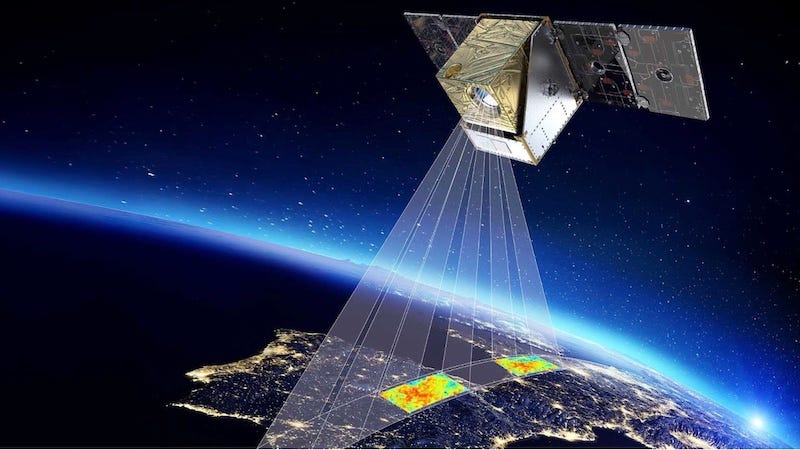Thales Alenia Space has invited Kongsberg NanoAvionics to join a consortium studying the European Space Agency’s (ESA) FutureEO program mission, SIRIUS (Space Based Infra-Red Imager for Urban Sustainability). NanoAvionics will contribute its small satellite expertise, including the flight-proven MP42H microsatellite bus and its flight operations segment design, to meet the technical requirements for the SIRIUS mission.
“NanoAvionics has a strong history of successful collaboration with Thales Alenia Space and ESA."
Atle Wøllo, NanoAvionics
SIRIUS is a next-generation Earth observation mission concept focused on frequent, high-resolution, night-time monitoring of Europe’s urban areas using thermal infrared (TIR). This allows for measuring building, infrastructure, and land surface temperature from space. The study will define the space and ground segment architecture to address challenges such as urban heat islands, urban planning, and the development of effective climate policies.
“NanoAvionics has a strong history of successful collaboration with Thales Alenia Space and ESA, having provided our small satellite design, manufacturing, and operations expertise for missions that are already working in orbit,” said Atle Wøllo, CEO of Kongsberg NanoAvionics. “Continuing our collaboration in the SIRIUS mission study to advance urban heat monitoring and sustainable city planning highlights the strength of combining the unique capabilities of small satellites with those of a legacy prime to deliver efficient and impactful solutions.”
Led by Thales Alenia Space, the consortium includes Earth observation specialists and scientists from across Europe.
The SIRIUS study is part of ESA’s Scout missions, intended as an agile, fast, and low-cost approach to prove new concepts in Earth observation, with a focus on scientific research.



